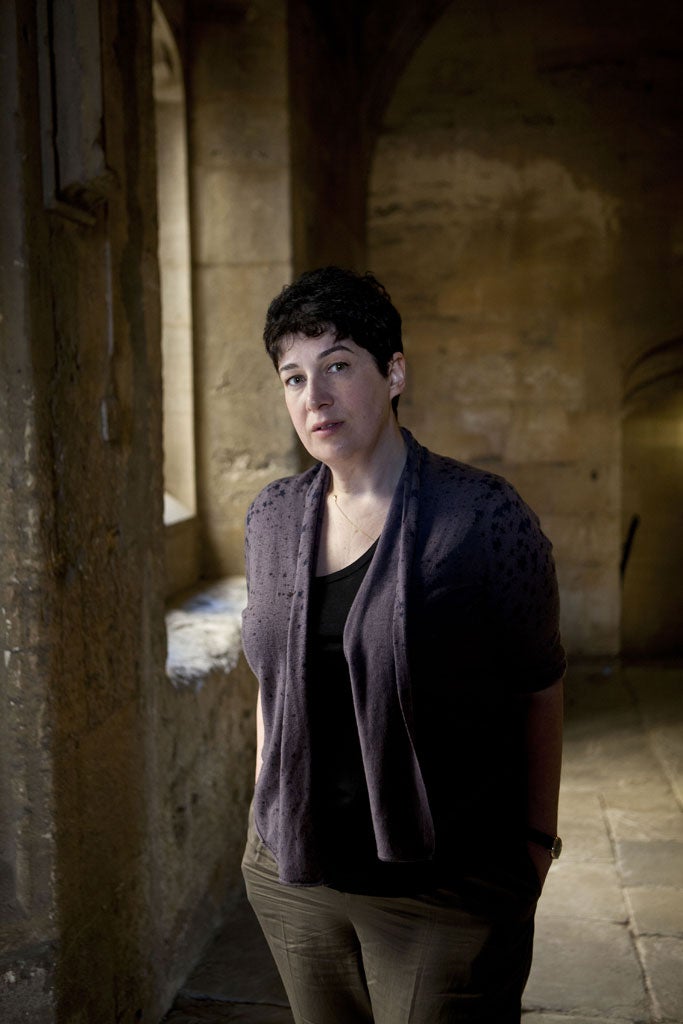Joanne Harris: 'People say they've found the fictional village where 'Chocolat' is set'

Your support helps us to tell the story
From reproductive rights to climate change to Big Tech, The Independent is on the ground when the story is developing. Whether it's investigating the financials of Elon Musk's pro-Trump PAC or producing our latest documentary, 'The A Word', which shines a light on the American women fighting for reproductive rights, we know how important it is to parse out the facts from the messaging.
At such a critical moment in US history, we need reporters on the ground. Your donation allows us to keep sending journalists to speak to both sides of the story.
The Independent is trusted by Americans across the entire political spectrum. And unlike many other quality news outlets, we choose not to lock Americans out of our reporting and analysis with paywalls. We believe quality journalism should be available to everyone, paid for by those who can afford it.
Your support makes all the difference.I was surprised at the success of 'Chocolat' I was told that sort of book wouldn't sell as it was too old-fashioned and stuck between literary and commercial fiction, but the public voted with their wallets. [It sold more than a million copies.] And just when I was getting used to it being a bestseller, I had to come to terms with the surreal progress of it becoming a movie – with the incongruous sight of seeing Johnny Depp on set. I liked it just fine, though if I had filmed it I might have made it slightly differently.
People gravitate to imaginary places Lots of people have told me they've been to Lansquenet-sous-Tannes [the fictional village where Chocolat was set]; they're convinced they've found it, and that they've been to the chocolate shop. One woman even wrote to say she had her wedding there. I find it fascinating that people find these real places and reinvest them with all sorts of emotional resonance; it's rather sweet.
The novel I go back to time and again is Victor Hugo's 'Les Misérables' I get drawn in by the relationship between [main character] Valjean and Cosette, his adopted daughter: his dislike and jealousy of the young [suitor] Marius, and how it goes through his mind that he is going to be alone and lose her to someone. You can tell that the person who wrote that was a father; it resonates with any parent.
When I write I'm constantly putting myself in the position of someone else as I write using myriad voices; I think that's a life skill all people should learn.
I find littering very annoying It's a minor but also a major thing: a society that litters is one that also has so little respect for the environment and, consequently, other people. If we had clean streets, a lot of other things would be fixed almost effortlessly.
Online communities are an expression of loneliness People want to gravitate towards real-life communities, but as society has fragmented and families have become less central they find social networks and that becomes their tribe. My worry, though, is how that has changed social interaction: you need not suffer consequences if you behave badly online. I cheered for the outcry against the racist tweets sent to [footballer Fabrice] Muamba because I think it showed people need to look at the consequences of actions and take responsibility.
I expected to hate Twitter so I joined to prove that fact – but I found it liberating There's so much choice in terms of who I interact with, it demands only a short amount of time and it has allowed me to meet people whose areas [of interest and expertise] are of interest to me, such as the theatre.
Joanne Harris, 47, is a British author. Her 'Chocolat' series continues, following 'The Lollipop Shoes', with 'Peaches for Monsieur le Curé', published by Doubleday, priced £18.99 (joanne-harris.co.uk)
Join our commenting forum
Join thought-provoking conversations, follow other Independent readers and see their replies
Comments